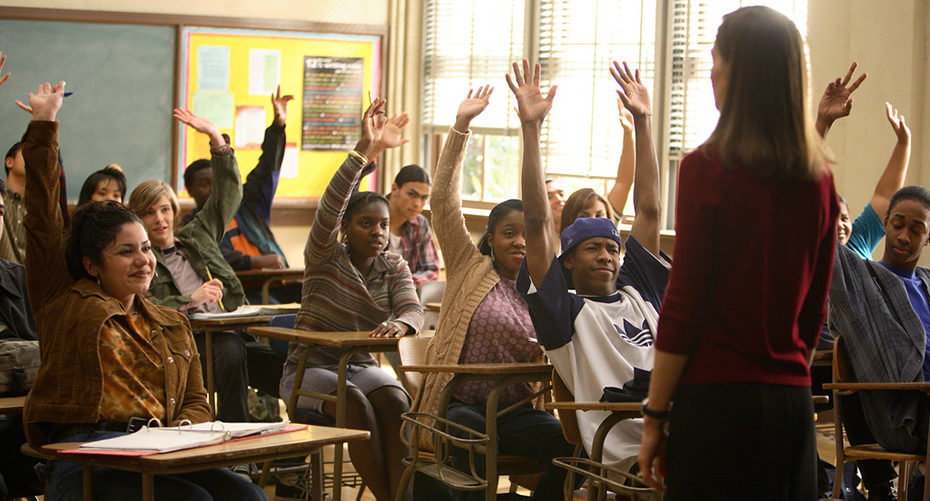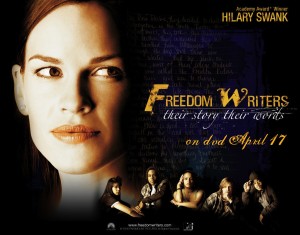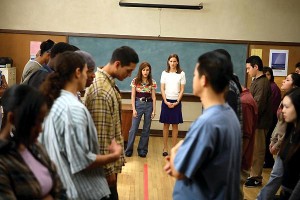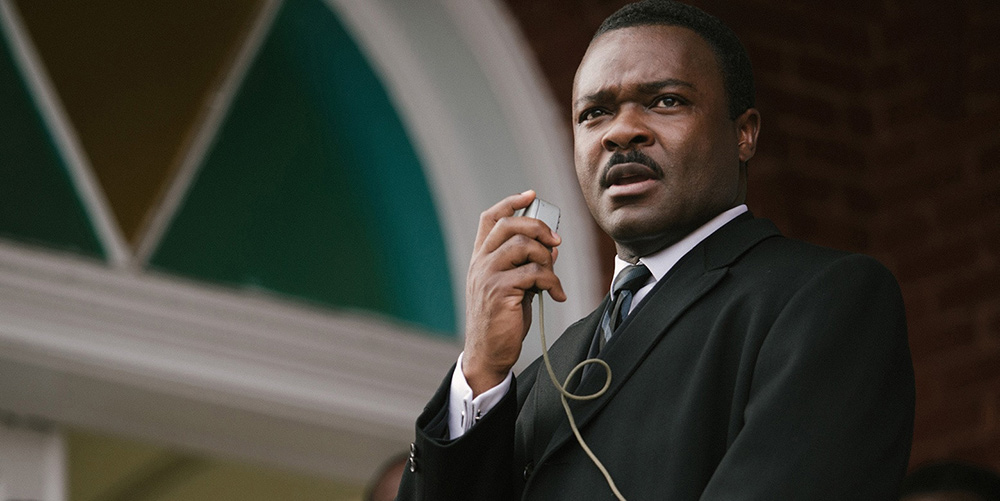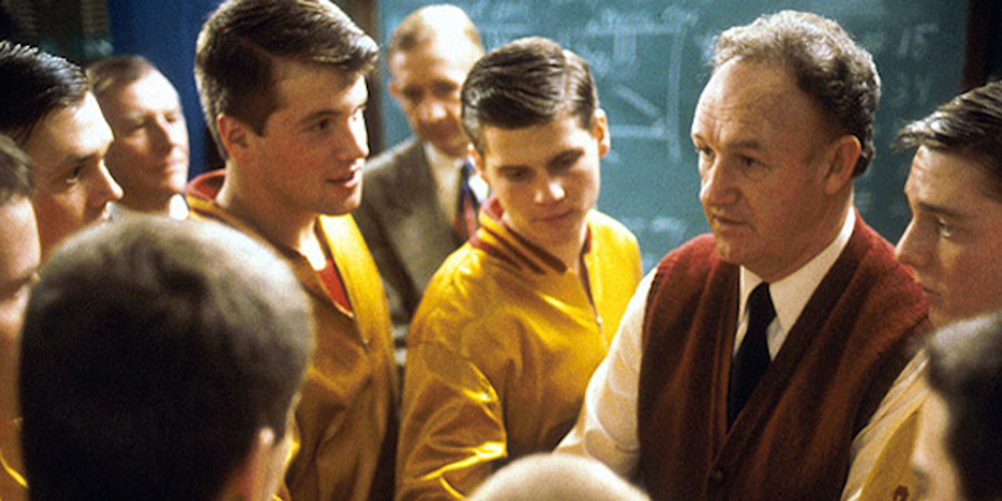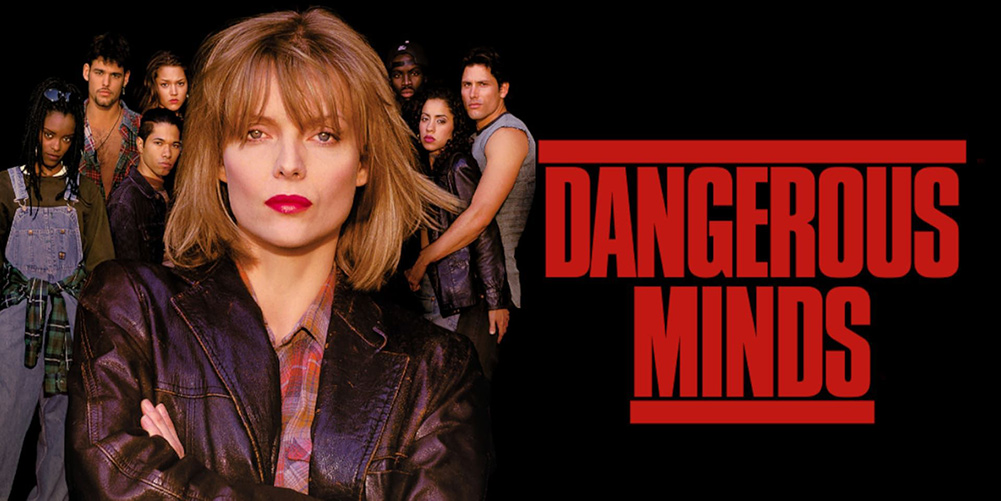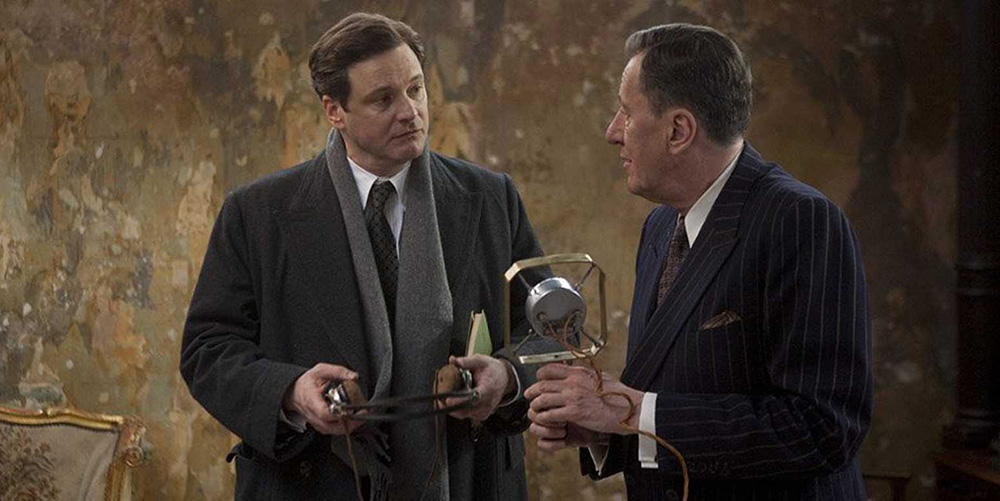Leading any group can be hard. But imagine that group is riven with gang rivalry and hate, with an ever-present threat of physical violence.
And that you’ve woefully underestimated the challenge.
That’s the situation facing Erin Gruwell (played by Hilary Swank) in her first teaching job at the newly-integrated Woodrow Wilson High School in Long Beach, California in 1994, as told in the inspiring Freedom Writers. Erin’s classroom is a microcosm of the gang-orientated world outside the school gates, with students who have little interest in learning.
It would be easy for anyone to give up in those circumstances. But by showing her leadership qualities, Erin’s persistence creates an astonishing turnaround in the attitudes of her students, and in what they go on to achieve.
Make a connection
Writing about Gandhi recently, I suggested that his most powerful leadership trait may have been the time he took to truly understand his people and their lives.
In Erin’s case, initially, the opposite is true. Her students believe she has no understanding of what their lives are like – she is irrelevant. And for weeks, her teaching only reinforces that belief.
It’s only when she finds out how many of her class have been shot at, or had friends or family murdered, that she begins to realise how tough their lives really are – and the pain they carry within them.
Build on common experience
Taping a line in the centre of the room, she asks her students to step forward to the line if certain statements are true. Starting with icebreaker-style: ‘Do you have the latest Snoop Dogg album?’ and ‘Have you seen Boyz ‘n the Hood?’, she progresses to tougher subjects: ‘Have you been arrested?’, ‘Have you lost a friend or family member to gang violence?’.
With her students distrusting or hating anyone from outside their own ethnic group, the atmosphere in class is tense. But Erin’s ‘line game’ helps them to see that they’re more alike than they realise (see clip below).
As the kids stand on the line with their fellow students, they begin to realise that they share many of the same experiences – and pain.
Set high expectations
As Erin explores new ways to connect with her students, she discovers the low expectations that even her fellow teachers have for them. Denying her access to new books, section head Margaret Campbell explains that:
The best you can do is try to get them to obey, to learn discipline.
It’s a similar issue to that faced by Coach Carter. But, as sociological experiments have shown, placing low expectations on children becomes a self-fulfilling prophecy. It’s one that Erin refuses to allow to happen to her students.
Listen
Erin’s moment of inspiration is to give each of her students a journal for them to write in each day, on whatever subject they want to. She doesn’t even make it compulsory for her students to hand them in.
But they do – in droves.
It’s a clear sign of their need to feel genuinely listened to: their need to have someone else truly understand the problems and issues they have. And it’s a lesson for any leader of people.
Be resilient
In many cases, teachers can expect support from colleagues. But in Erin’s case, she quickly realises she stands alone in her attempts to inspire her students to greater things.
Many of her fellow teachers actually blame the kids for ‘ruining the school’. Neither does she get much support at home from her increasingly distant husband. In these circumstances, it takes real resilience to keep focused on her task.
But she does, even taking on extra jobs so she can afford to fund the books and educational visits she wants for her students.
Later, she challenges school rules and customs to allow her to continue teaching the students with whom she has created such a rapport and sense of trust.
It’s an astonishing story of commitment, and one that shows the real power of leadership.
In many ways, Erin role models Robert Greenleaf’s notion of servant leadership. Greenleaf wrote:
The best test, and the most difficult to administer, is this: ‘Do those served grow as persons? Do they, while being served, become healthier, wiser, freer, more autonomous, more likely themselves to become servants?’
Erin really does make a difference to her students’ lives, and is there any better indication of true leadership than that?
When I’m helping these kids make sense of their lives, everything about my life makes sense to me.
Erin Gruwell
